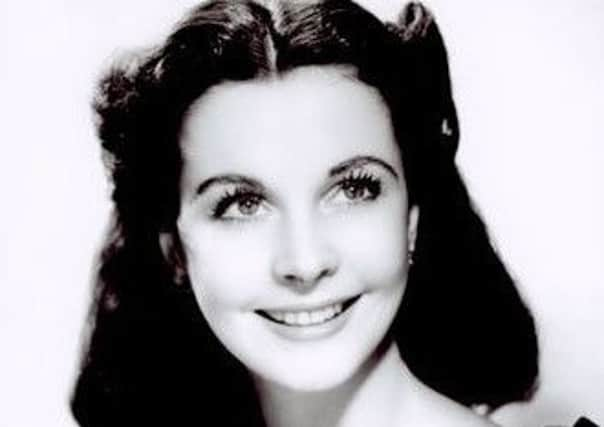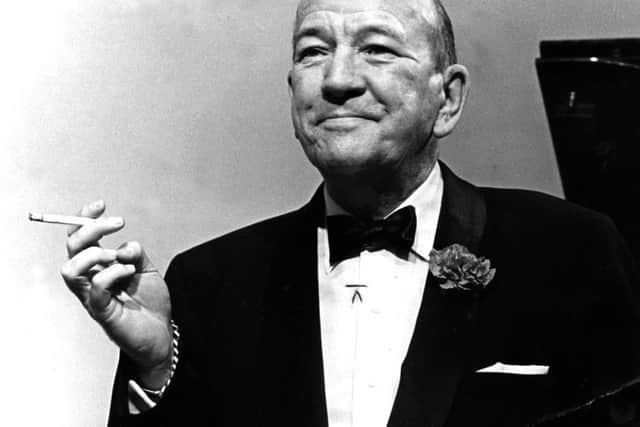Barry Band: When 40s star Scarlett blew into The Grand Theatre in Blackpool


In 1940, she won the Best Actress Oscar for her role of Scarlett O’Hara in Gone With the Wind and she was married to Laurence Olivier. And here she was in Blackpool less than two years later, starring at the Grand Theatre in Bernard Shaw’s medical drama, The Doctor’s Dilemma.
She opened the Grand’s 1941 autumn season on Monday, October 6. What’s more, her husband came to see her and they on the Sunday night they did excerpts from Shakespeare in an RAF charity concert at the Opera House.
Advertisement
Hide AdAdvertisement
Hide AdVivien Leigh (1913-1967) toured in the Shaw play, returning to the Grand for a week in February, 1942, prior to opening at London’s Haymarket Theatre in March, for a run of 474 performances.


Memory Lane opened the 40s chapter last week, picking Grand Theatre highlights to mark the venue’s 125th anniversary.
Have a look at these Gazette ads from 1941 and 42, which I enhanced for my 1994 Centenary history of the theatre. After checking out the Vivien Leigh ad, turn to Rebecca, another outstanding attraction of 1941.
Daphne du Maurier’s thriller had the triple success of a novel, an Alfred Hitchcock film starring Laurence Olivier and Joan Fontaine, and a stage play with Owen Nares, Peggy Ashcroft, Margaret Rutherford and Raymond Huntley. The play came to the Grand for the week of February 3, 1941, and the Gazette’s reviewer couldn’t avoid the comment: “One misses the wide scenic scope of the screen... but within the restrictions of time and place it is cleverly done.”
Advertisement
Hide AdAdvertisement
Hide AdThree weeks later the film version took the 1941 Academy Award for Best Picture. But the play was successful enough to tour throughout the year and returned to the Grand for a week in November, with some changes to the cast.
A famous writer from an earlier era was clearly loved by actors, for the cast of JM Barrie’s whimsical Dear Brutus, in July, 1941, was packed with stellar names.
John Gielgud directed and starred and received a Gazette plaudit for his “finely phrased and admirably restrained performance” – whatever that meant. The play might be best described as a comedy of the absurd.
Blackpool comedian Harry Korris returned for a second summer season, this time in his radio success, Happidrome, with Robbie Vincent and Cecil Frederick.
Advertisement
Hide AdAdvertisement
Hide AdAfter the October visit of Vivien Leigh, the Grand’s line-up of shows included a week by the Sadler’s Wells Opera in repertoire and two December weeks by the D’Oyly Carte Opera Company with Gilbert and Sullivan favourites.
Moving to 1942 we note (in the ad) that in February the Grand had the premiere of the musical comedy Full Swing, starring husband and wife team Jack Hulbert and Cicely Courtneidge. It must have been the only premiere to open with a Wednesday matinee. It was a huge production, it arrived late and the Grand’s stage staff, depleted by the war, needed more time to fit the show.
It opened at London’s Palace Theatre in April, for a run of 468 performances.
There was an unusual summer season show in 1942. No music, no laughs but plenty of crime in a stage version of James Hadley Chase’s graphic novel No Orchids for Miss Blandish. Robert Newton played gangster Slim Grissom, Hartley Power was a brave crime reporter and Linden Travers was a kidnapped heiress.
Advertisement
Hide AdAdvertisement
Hide AdThe surprise to veteran theatre-goers of today is the story was toned down and directed by Robert Nesbitt, whose many Blackpool credits included producing the 1981 Royal Gala Performance marking the formal reopening of the Grand by Prince Charles.
Two autumn shows must be named as the highlights of 1942 at the Grand.
September 28 saw the opening of Edith Evans in John Van Druten’s Old Acquaintance, a story of two lifelong friends who found themselves rivals for the same man. It was said to be based on the romance of American novelists Lillian Hellman and Dashiel Hammett. A brief review in the Gazette mentioned “the usual brilliance” of Edith Evans.
The following week was blurbed in Gazette ads as: “The most outstanding theatrical event of the year – three Noel Coward first nights!”
Advertisement
Hide AdAdvertisement
Hide AdTwo of them were world premieres, Present Laughter and This Happy Breed, which had both been withdrawn from rehearsal on the outbreak of war. Noel Coward appeared as Garry Essendine (a virtual self-portrait) in Present Laughter, his comedy of a worldly dramatist entering middle age, and as Frank Gibbons in This Happy Breed, his story of family life between the two world wars.
His third role was Charles in his comedy Blithe Spirit. He had just played the part for two weeks in the West End, giving Cecil Parker a break in the long-running success.
Being the start of a 20-week tour, Coward and his company arrived in Blackpool early. They met up with Edith Evans and went on a Saturday afternoon tour of he resort before spending Sunday in rehearsal.
In a Gazette interview “the Master” said of the resort: “Enchanting place. You read about it and don’t quite believe it. Then you come and find it’s true.”